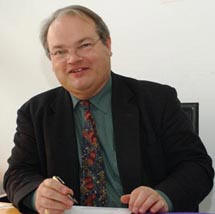European Personality Award
2019: Prof. Silvana Galderisi
Professor of Psychiatry and Director of the training school in Psychiatry at the University of Campania Luigi Vanvitelli (SUN), where she is also the Director of the Emergency Unit of the Department of Mental Health. Currently Past President of the European Psychiatric Association (EPA), she is also Chairperson of the EPA Section on Schizophrenia, founding member and member of the Board of Directors of the European Group for Research in Schizophrenia, Chairperson of the Neuroimaging Section in Psychiatry of the World Psychiatric Association (WPA) and Chairperson of the Schizophrenia Network of the European College of Neuropsychopharmacology (ECNP).
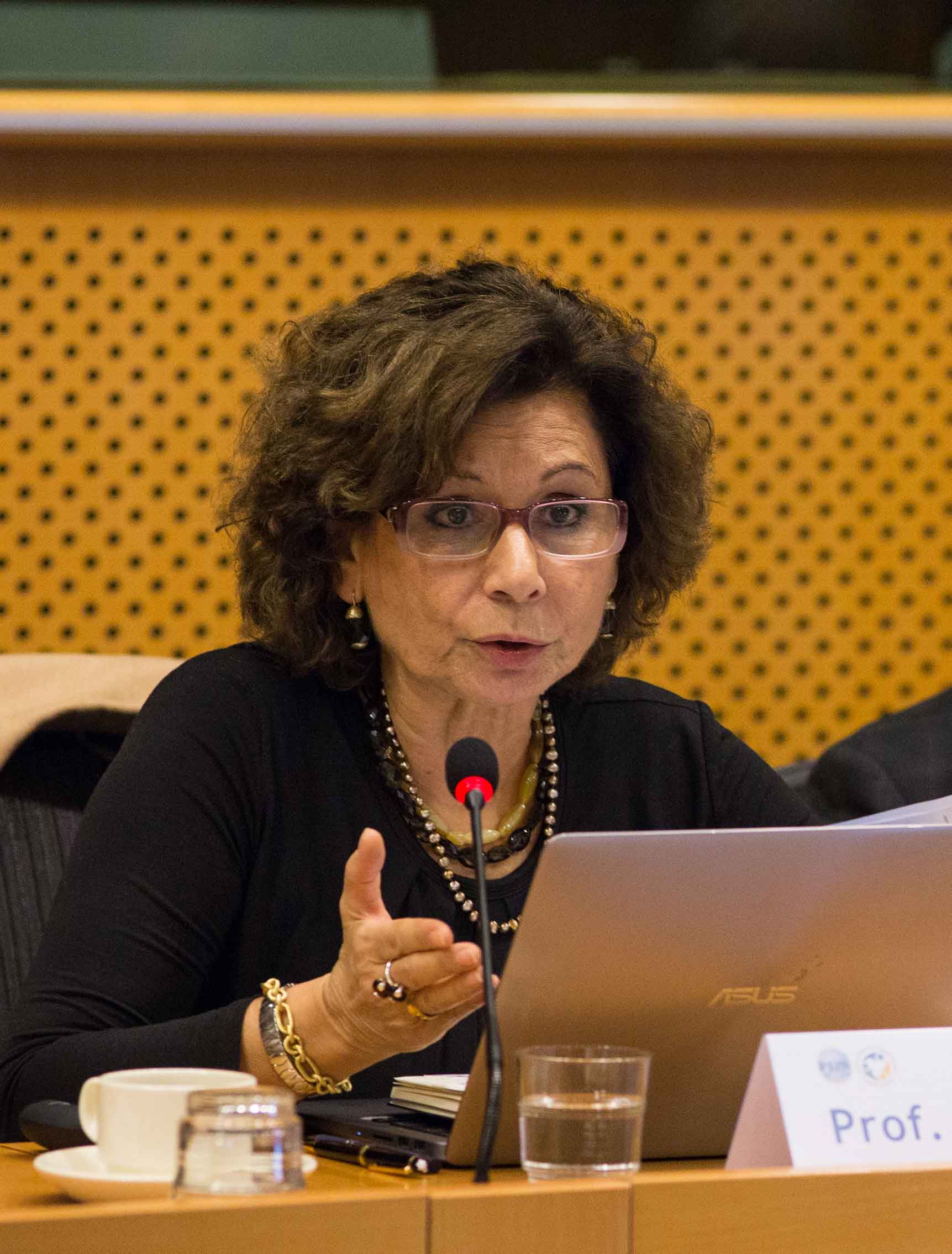
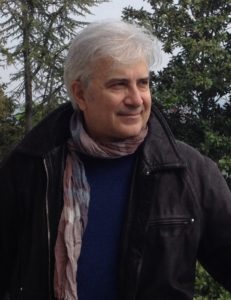
2017: Dr. Roberto Mezzina
Roberto MEZZINA, psychiatrist, born in 1953, is currently the Director of the Department of Mental Health in Trieste, Italy. He contributed from 1978 to the experience in Trieste, which inspired the Italian Mental Health Reform Law of 1978, with the closure of the psychiatric hospital and the creation of a network of totally alternative Community Service.
He developed the 24-hour-CMH Centre model in the locality of Barcola which he leads from 1992 on, that is still considered as the best example of the overall Trieste model, and begun the first Italian experience of user involvement in services in the 90’s. As Director of Department, he ended up the process of reconversion of all former psychiatric hospital facilities in Trieste toward independent living; he has opened the first open door forensic unit in Italy in 2015, and has developed the model of recovery house in the public system.
In 2009 he was the Head of the WHO Collaborating Centre for Research and Training at the Department of Mental Health, Trieste, which aimed to support the deinstitutionalization and development of community-based services worldwide and to support National Governments for reform policies (UK, Denmark, Czech Republic, Australia, New Zealand, Poland, Serbia, France, Palestine among others).
He also promoted from 2001 the International Mental Health Collaborating Network, of whom he is currently the President. His professional experience and scientific production (about 200 papers and 2 books) include deinstitutionalization, the organization of community services, crisis intervention, and integrated approach to the therapy of psychosis, community care, rehabilitation, recovery, user involvement, human rights, research and epidemiology, epistemology, critical forensic psychiatry.
On those issues he has been invited as teacher, keynote speaker and expert in hundreds of conferences and courses hold by Scientific Institutes, Universities, Mental Health Services in Italy, Europe and overseas (eg. USA, Canada, Australia, New Zealand, India, Sri Lanka, Palestine, Iran, Brazil, Argentina, Japan, Korea). He was Past Secretary of Società Triveneta di Psichiatria Democratica (1986-1988); Travelling Professor for the Royal College of Psychiatrists of Australia and New Zealand in 2012; has been prized for Innovative Practice as regards to article 19 of CRPD by Zero Project at UN in Vienna, 2014; he is also invited expert at National Committee of Bioethics (CNB) at the Italian Presidency of Ministries, Rome, 2016.
2016: José Miguel Caldas de Almeida
José Miguel Caldas de Almeida is Professor of Psychiatry and Mental Health, Chairman of the Mental Health Department at the Faculdade de Ciências Médicas, the NOVA University of Lisbon Medical School, and President of the Lisbon Institute of Global Mental Health.
He was the Chief of the Mental Health Unit at the Pan American Health Organization, the Regional Office of the World Health Organization for the Americas, in Washington DC. He was the Coordinator of the EU Joint Action for Mental Health and Wellbeing (2013-2016), and currently is member of the consortium responsible for the coordination of the EU Compass for Action on Mental health and Wellbeing.
A native from Portugal, he received his Ph.D. in psychiatry and mental health from the NOVA University of Lisbon. He is Professor of Psychiatry and Mental Health at the Faculdade de Ciências Médicas, NOVA University of Lisbon since 1986 and Chairman of the University Department of Psychiatry and Mental Health of S. Francisco Xavier Hospital, in Lisbon, from 1990 to 2000 and since 2006. He was Director of National Mental Health Services in Portugal, between 1988 and 1990, Coordinator of the Task-Force for the elaboration of the new mental health law passed in 1998, and Coordinator of the National Mental Health Plan from 2007 to 2011.
Dr. Caldas de Almeida is author of more than 50 articles and book chapters, mainly in the areas of psychiatric epidemiology, mental health services research and psychiatry in primary care. He was President of the Portuguese Mental Health Association (1995-2000) and the Portuguese Society of Psychiatric Epidemiology (1993-1997) and is the President of the Lisbon Society of Medical Sciences. He was Member of the Executive Committee of the European Regional Council of the World Federation for Mental Health between 1994 and 1997, and Member of the Executive Group of the European Network on Mental Health Policy between 1998 and 2000. Dr. Caldas de Almeida worked as Temporary Adviser for WHO in several occasions in Africa, Europe and Latin America.
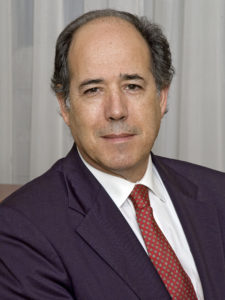
2015: John Copeland
John Copeland MD and ScD (Cambridge) was president of WFMH 2007-2009. He was Head of the Dept. of Psychiatry Liverpool Univ. 1976-1997. He founded and chairs the WFMH Great Push for Mental Health and was organiser and co-author of the People’s Charter for Mental Health (www.wfmh.org) based on a WFMH survey of international organisations. Prof. John Copeland and his colleagues, among GAMIAN-Europe Board Member John Bowis, incorporated survey results as a part of the: People’s Charter for Mental Health” to show the actions needed by governments and specific NGOs to improve mental health care, the Charter was published in 2013. The “Great Push” is now campaigning for the five Charter goals :
- 1. UN Gen Assembly Special Session for Mental Health;
- 2. The recognition of mental disorders as major noncommunicable diseases;
- 3. That mental health and well-being be recognised as components of the Sustainable Development Goals;
- 4. That Mental Health be represented on all Disaster Emergency Committees;
- 5. That the WHO Comprehensive Action Plan for Mental Health be implemented by all countries.
2014: Stephen Bevan
Stephen is Director of the Centre for Workforce Effectiveness at The Work Foundation and an Honorary Professor at Lancaster University. Stephen has a special interest in workforce health and wellbeing, leading a number of national and international projects focusing on workforce health and the impact of chronic illness on productivity and social inclusion. He has conducted research on the employment impact of depression, anxiety and schizophrenia and has campaigned for more active employment support for people living with mental illness. Stephen has been prominent in raising awareness of the need for ‘Good Work’ as a driver of positive mental health. He is an advisor to a number of UK government departments and has advised employers and policymakers in Europe, Asia-Pacific, Australasia and North America. In 2014 he was named the 6th most influential HR thinker in the UK. Stephen is a reviewer for several academic journals, including The Lancet, a regular columnist for HR Magazine, a judge at the Global Healthy Workplace Awards and is a member of Public Health England’s Health & Work Advisory Board, the Health and Work Group of the Public Health Responsibility Deal and the British Society of Rheumatology International Strategy Group. Stephen is Chair of the UK Fit for Work Coalition and Director of The Work Foundation’s Health at Work Policy Unit.
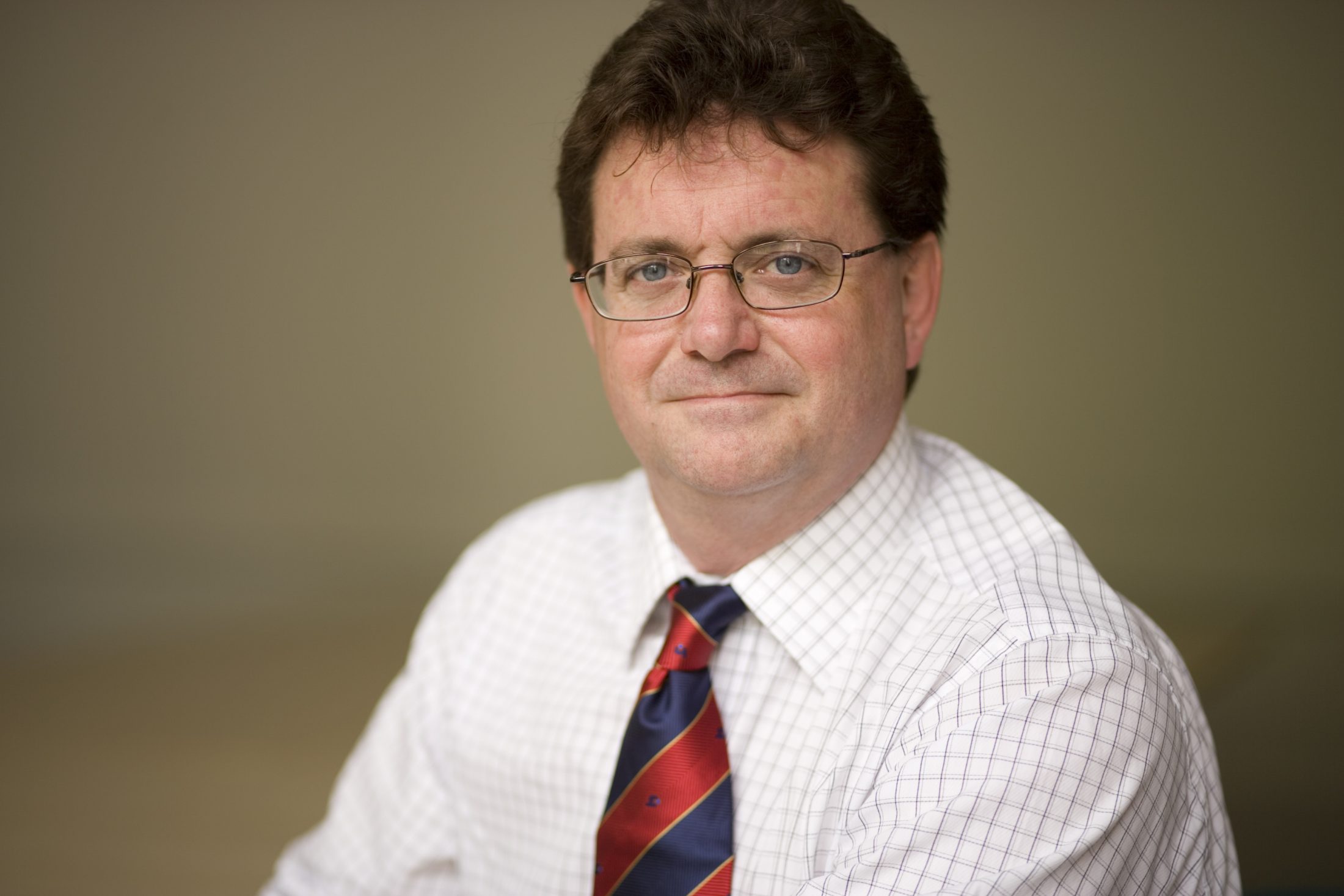

2013: Dr. Matt Muijen
Dr M.MUIJEN is the Programme Manager for Mental Health at the WHO Regional Office for Europe. He is responsible for planning and coordinating mental health policies and strategies, research, dissemination and implementation in the Region, and is working actively with the 53 European Member States. By participating, In 2005 in the Gamian annual convention in Bucharest, he made clear that patient involvement was very important for him. Another big priority of this year was the drafting of a new WHO European Mental Health Action Plan for Europe 53 European Member States. This is a very important document that will influence the actions of member states on mental health and will serve as a reference for action. In two other major projects of the WHO, patients were important partners: The workshops on empowerment in Mental Health – working togheter towards leadership (2010) presented at the Gamian convention of 2010. And the workgroup preparing the development of a new WHO Europe Mental Health strategy (2011-2012)
2012: Dr. Barbara Lopes Cardozo
Dr. Barbara Lopes Cardozo holds a Medical Degree from the University of Amsterdam, a Master’s degree in Public Health from Tulane University, and a specialization in Psychiatry from Louisiana State University. She is one of the founding members of Doctors Without Borders – Holland, winner of the 1999 Nobel Peace Prize. Among the dozens of missions with direct on-the-ground involvement by Dr. Lopes Cardozo during a decade with the organization are the Armenian (USSR) Earthquake, Armero (Colombia) Volcano disaster, Peru cholera epidemic, as well as aid to victims of political and military conflict in Somalia, Uganda, Haiti, and Nicaragua. She has worked as medical coordinator for the United Nations High Commissioner for Refugees (UNHCR) in Zaire. Currently, she is a psychiatric epidemiologist at the International Emergency and Refugee Health Branch (IERHB) of the Centers for Disease Control and Prevention (CDC) in Atlanta, focusing on mental health and psychosocial issues in complex humanitarian emergencies. Dr Lopes Cardozo has conducted numerous mental health surveys in war-affected countries and provided emergency technical assistance to UNHCR, WHO and NGO’s in Macedonia, Kosovo, Thailand, Pakistan, Afghanistan, Cambodia, Israel, Jordan, and Kuwait/Iraq. She has also conducted mental health studies among humanitarian aid workers who work in these stressful conditions. Dr Lopes Cardozo is also an Adjunct Assistant Professor in the Hubert Department of Global Health, Rollins School of Public Health, Emory University.

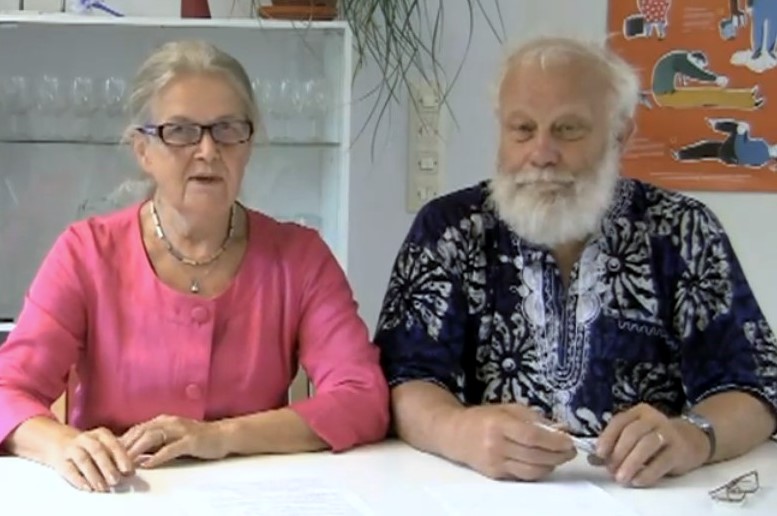
2011: Mrs & Mr Vappu and Illka Taipale, Finland
Their address to GE is available here. Vappu Taipale is a Finnish doctor of medicine, politician and a former member of parliament. Vappu was a director-general at STAKES from 1992 to 2008, after which she retired. STAKES preceded The National Institute for Health and Welfare (THL), which is a research and development institute under the Finnish Ministry of Social Affairs and Health. In her position as a director-general of STAKES, Vappu influenced very much in getting Mental Health on EU-agenda in 1999 when Finland held the EU Presidency. Vappu has been very active in Mental Health Promotion in Europe and in forming EU Mental Health Srategy. Even after her retirement she is very active in voluntary work concerning Mental Health. Ilkka Taipale is a Finnish politician and a doctor. He has been a member of parliament in 1971-1975 and again in 2000-2007. He has been a directing psychiatrist in Kellokoski psychiatric hospital for several years and he was a president of Finnish Central Association for Mental Health for four years at the end of 1990’s. Finnish Central Association for Mental Health is an association for people suffering and recovering from psychiatric problems. The Association consists of some 190 local, regional and national mental health associations from all over the country with some 22 000 individual members. Ilkka is famous about advocating for homeless people, for mental health patients, for prisoners and for unemployed people.
2010: Mr. Jürgen Scheftlein
Mr. Jürgen Scheftlein, policy officer in charge of mental health at DG Sanco, European Commission (2010, the 13th annual Convention, Lisbon, Portugal).
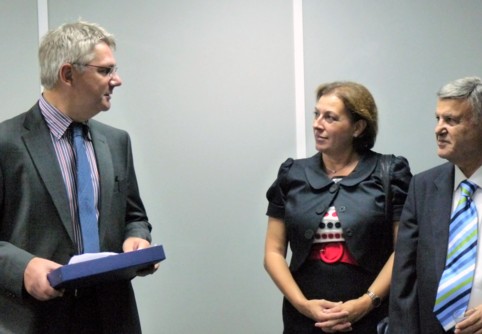

2009: Mr. Stephen John Fry
Mr. Stephen John Fry (born 24 August 1957) is an English actor, writer, journalist, comedian, television presenter and film director, the author of the book “The Secret Life of a Manic Depressive” where he talks of his struggle with bipolar disorder and interviews others who have the condition. (2009, the 12th annual Convention, Malta).
2008: Mr Kjell Magne Bondevik
Mr Kjell Magne Bondevik, the former Norwegian Prime Minister (2008, the 11th annual Convention, Jerusalem, Israel). Mr Bondevik suffered from depression while in office. He admitted and declared his illness, helping to make mental illness more publicly acceptable, and after recovery he was elected for a second term which expired in 2005, when he retired leaving the country with a booming economy.
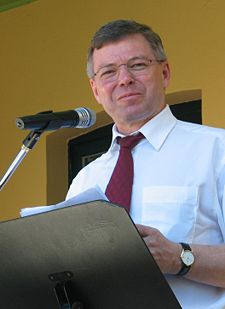
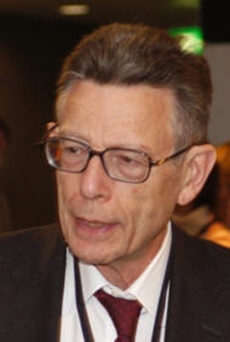
2007: Professor Norman Sartorius
Prof. Norman Sartorius undoubtedly is one of the most prominent and influential psychiatrists of his generation, professor of psychiatry based at Geneva University, member of the most important world associations. He played an essential role in the GAMIAN-Europe Stigma Survey.
2006: Mr John Bowis, Member of the European Parliament
Mr Bowis outlined the politicians’ perspective and the EU action on Mental Health, in particular on his own Report for the Parliament on response to the Green Paper. He stressed the necessity of a patient-centred policy involving individuals in any decision about treatment, care and planning of services and of a better balance between medication and therapy. He strongly believes that a new emphasis must be put on the promotion of mental well-being.
